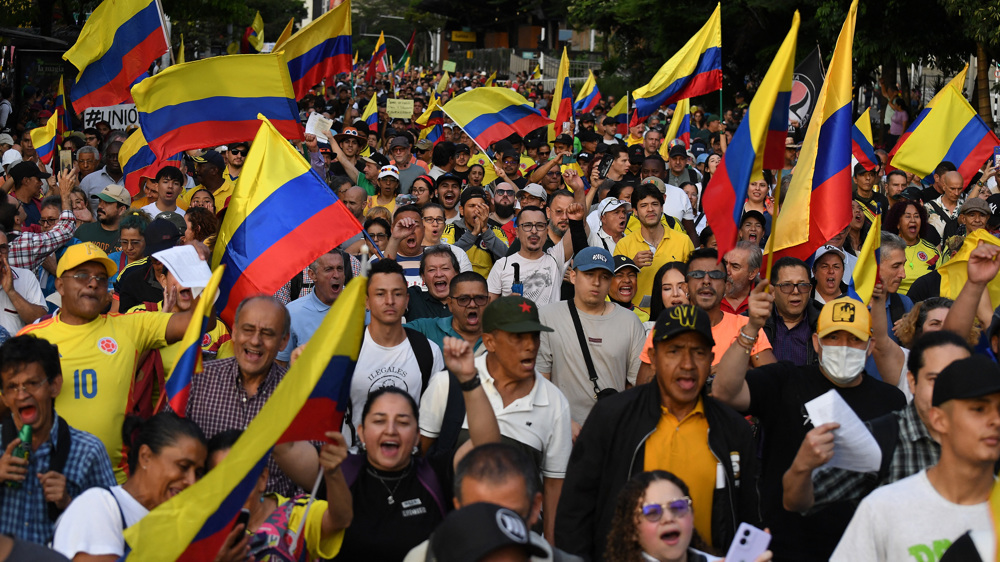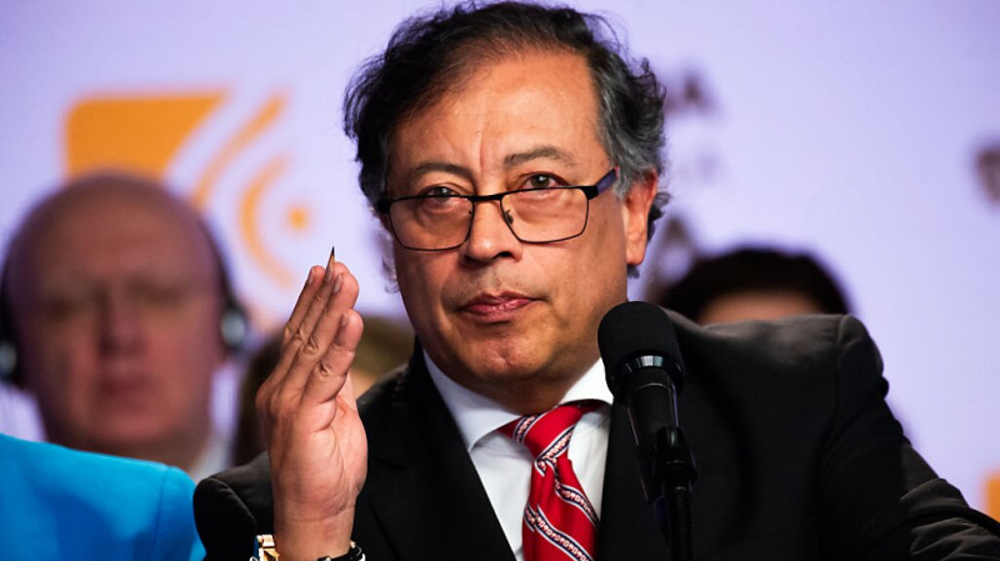Colombian anti-corruption referendum fails to meet quorum
Colombia has failed to approve a set of rules, which would toughen penalties for corrupt officials, after a referendum on the anti-graft measures fell short of a required participation threshold.
Nearly 11.7 million Colombians voted on Sunday in favor of 7 proposed anti-corruption measures against the upper layers of power.
The plebiscite, however, failed with just 470,000 votes short of the 12.1 million votes needed for approval.
“Ninety-nine percent of those of us who voted support the initiatives,” newly-elected President Ivan Duque said in an address to the nation.
“Unfortunately the number of votes did not reach the minimum needed for approval,” added the president, who has vowed to fight corruption and described it as “cancer.”
Green Party Senator Angelica Lozano, who supported the measures, also said, “We were five cents short, but change is unstoppable and here there was a shaking of the traditional political class.”
The measures included seven proposals, from cutting high-ranking officials’ salaries to imposing term limits and eliminating house arrest as a punishment.
Under the current rules, the officials found guilty of graft often serve their sentences in the form of house arrest in their multi-million-dollar homes.
While mostly aimed at cracking down on abuses by public officials, the initiative would have also made private contracts with the state more transparent, and banned companies convicted of corrupt practices from dealing with the public sector.
Judges had banned the vote, claiming there were already enough laws to eliminate corruption.
"We already have lots of anti-corruption laws,” Hermens Lara, a Bogota municipal judge who is director of the Board of Judges and Magistrates of Colombia, had said before the vote. “The problem is implementing them.”
Institutional corruption is rife in Colombia, weakening the public trust in government.
One university study found that, from 1991 to 2011, corruption cost Colombia 4 percent of its GDP.
Arab rights group urges UK to sanction Netanyahu over 'incitement to genocide' in Gaza
‘Political, non-constructive’: Iran slams UNHRC special session on recent riots
Forced evacuations in South Gaza as Israeli military expands control over land
Iran reports steep rise in exports after forex policy shift
Iranian bank loans up 47.2% y/y in Apr-Dec
Macron slams Trump’s ‘bullying’ as US threatens tariffs, pushes Greenland grab
Israeli rape victim and former captive says Hamas felt safer than Israel
VIDEO | Press TV's news headlines












 This makes it easy to access the Press TV website
This makes it easy to access the Press TV website